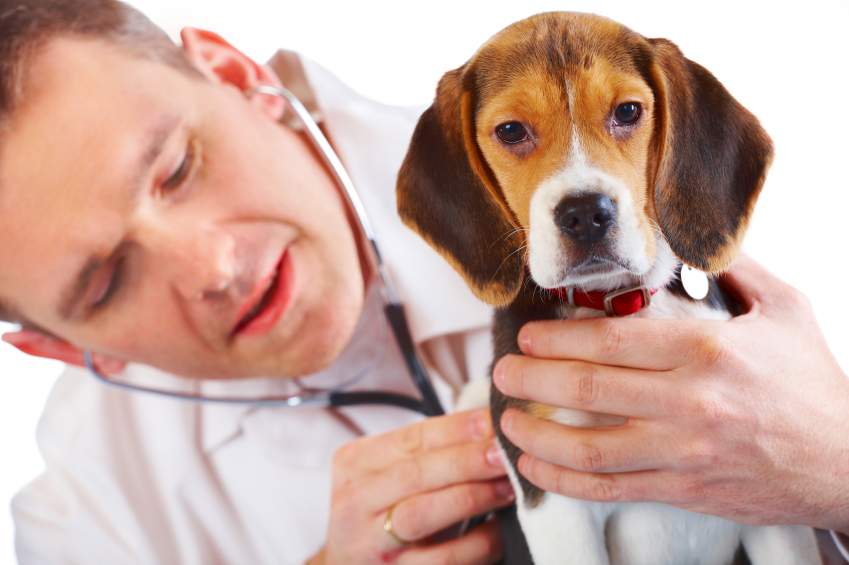The mouth, or oral cavity, is a very important part of the digestive system in dogs. This is where digestion begins. As a dog chews, food is broken up into smaller particles for better digestion by enzymes in the stomach and small intestines. Teeth, therefore, play a very important role in digestion. The tongue and front teeth help a dog pick up pieces of food and teeth in the back of the mouth grind food into smaller particles.
The symptoms and diagnosis for canine diarrhea
A simple definition of diarrhea is too much water in the stool. There are several different reasons this affliction can occur including:
If too many food particles are present in the intestines, this prevents them from absorbing enough water. This occurs with over-eating, when rapid changes in the diet are made, and during stressful situations. When a dog eats too much, there may not be enough digestive enzymes produced to breakdown all of the food. When a rapid change in diet is made, digestive enzymes do not have time to adjust to the new type of food.
Dog's urinary problems: Top 5 signs your dog has bladder problems
Can you tell when your dog is not feeling well? Chances are you can. Most dog owners are in tune to their pets, and will observe the behavioral changes that can occur when their dog is sick. In dogs, urinary problems can be hard to spot, especially if your dog urinates in the yard, instead of on a walk. Here are five most key signs exhibited by dogs with urinary problems.
Symptoms and care for canine dental disease
Dental disease is one of the most common problems that dogs have. Up to 85% of dogs over the age of three years usually have ...
Prevention is always better than cure

I have always explained to my clients that it is so important to keep on top of their pet's health. The age old saying is " Prevention is better than cure" and I couldn't agree more! A typical example is dental disease.
So many times I encourage owners to keep an eye on their dog's teeth regularly as well as consider dental chews, dental biscuits or tooth brushing. However, time after time their dogs return to me ages 7 - 8 onwards with appauling dental disease. These dogs primarily seem to be the small breeds like Yorkshire Terriers and Chihuahuas for example with small, crowded mouths. The end result is a full general anesthetic and multiple teeth to be removed.
How to choose a vet
Your vet is a pretty significant figure in your dog’s life – and thus, in yours. Hopefully, you will only ever need him or her for routine checkups and preventative procedures; but just in case, it’s worth taking the time to develop a good relationship with a suitable vet, before you need their services.
WHERE TO LOOK
Sure, you could just pick a vet at random from the Yellow Pages or from an Internet search; but having the right vet is crucial to your dog’s health and happiness (and, presumably, this plays at least some part in your own happiness and peace of mind as an owner, right?)
Think about it this way: if you were trying to choose a doctor for yourself, would you be happy to just select one at random from an impersonal list?


